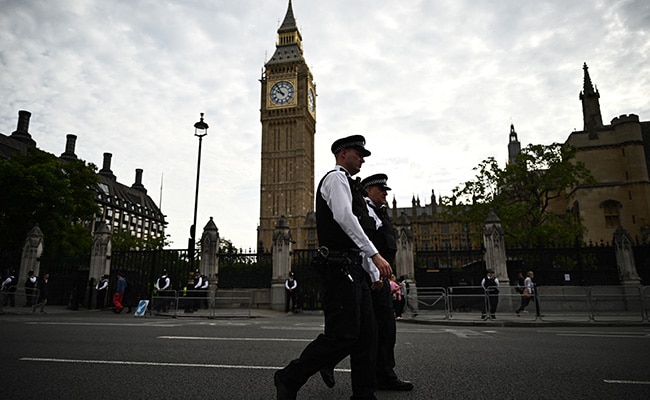A cloudburst in South Lhonak lake on October 4 caused a devastating flood in Sikkim.
New Delhi:
The Army on Saturday said the flash floods in the hinterland of Sikkim are not affecting its operational preparedness along the Line of Actual Control (LAC) in the state and the formations responsible for the border management posture are maintaining a high state of readiness.
While the hinterland of Sikkim has been affected, the operational situation along the LAC in Sikkim continues to be stable, the Army said.
It said approximately 1,500 tourists are assessed to be stranded in the areas of Lachung and Lachen valleys in North Sikkim and efforts are on to rescue them.
The Army suffered damage in the floods as some of its camps along the banks of the Teesta river were swept away.
“The formations responsible for the Border Management Posture are maintaining a high state of readiness and are optimally stocked as per the sustainable operational logistics plan,” it said.
The Army’s assertion came on a day when the bodies of eight soldiers were found. The soldiers were part of a group of 22 Army personnel that went missing following the flash floods which were triggered by a cloudburst.
A cloudburst in South Lhonak lake in North Sikkim on October 4 caused a devastating flood in Sikkim.
“The level of water in the Teesta increased by about 50-60 feet in height which caused calamitous floods downstream,” the Army said, adding it was also affected as some of its camps along the river bank were either damaged or washed away.
“A vehicle parking area at Burdang near Singtam was affected by the flash flood and 23 soldiers and 39 vehicles that were taking an overnight transit halt have been submerged in silt or swept away,” the Army said.
“At the site of the incident, silt and mud measuring up to 30-40 feet high have been deposited and most of the vehicles are buried underneath,” it said.
A massive search and rescue operation was immediately launched by the Indian Army, Border Roads Organisation, along with NDRF, state disaster relief teams, para military forces and civil administration.
“The Indian Army along with all agencies and Civil Administration continue their relentless search and rescue operations, while at the same time focusing on resuscitation of communication and other infrastructure in a well-coordinated manner,” the Army said in a statement.
The Army said it received reports of some ammunition, explosives and stores of the force being swept away from various camps and that 15 vehicles out of 39 that were missing have been recovered.
“Some ammunition, explosives and stores of the Indian Army from various camps swept away have been reported from various places along the downstream river banks,” it said.
“The Indian Army has issued advisories through civil administration and deployed look out teams along with state police to warn the locals for reporting sighting of such items. Ammunition experts have been deployed to destroy the explosives recovered in a controlled manner,” it said.
The Army said the national highway 10 (NH 10), the lifeline of Sikkim, has been rendered “unusable” due to damage to the road surface and many bridges across the Teesta river were damaged.
“Alternate routes to Gangtok are available through East Sikkim and routes to West and South Sikkim are also available. However, in North Sikkim, roads beyond Mangan are currently cut off,” it said.
Eastern Army Commander Lt Gen RP Kalita along with Lt Gen VPS Kaushik, General-Officer Commanding of the Trishakti Corps, undertook an aerial survey on Friday to assess the extent of damage and plan for the relief efforts.
According to estimates by the state government, a total of 142 people were missing, out of which 26 bodies have been recovered so far, the Army said. It said the exact assessment of the damage is yet to be corroborated due to the inclement weather and incessant rains.
Out of the 26 bodies, eight have been positively identified as that of Indian Army soldiers, the Army said.
It said approximately 1,500 tourists are assessed to be stranded in the areas of Lachung and Lachen valleys in North Sikkim.
“The Indian Army along with the local administration has been extending assistance to the stranded tourists and locals by providing food, medical aid and telephone connectivity through satellite terminals,” it said.
Teams have collected data of all the tourists staying in various hotels and some of them have been accommodated in Army camps, it said.
Special helplines have been set up at Indian Army’s Trishakti Corps headquarter and family members back home of all the stranded tourists have been informed about their well-being.
(Except for the headline, this story has not been edited by NDTV staff and is published from a syndicated feed.)



















